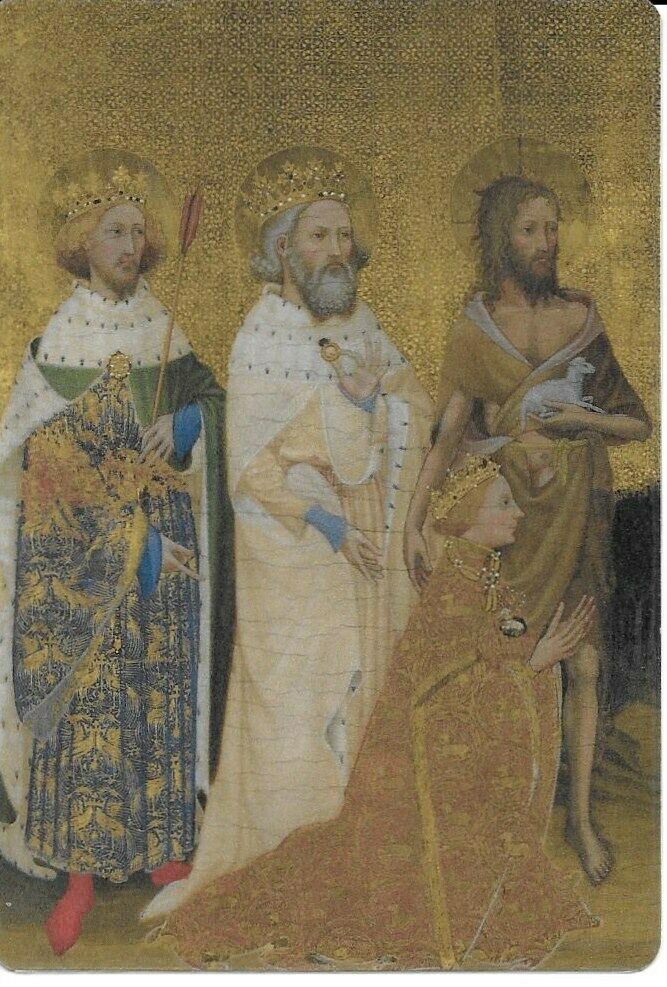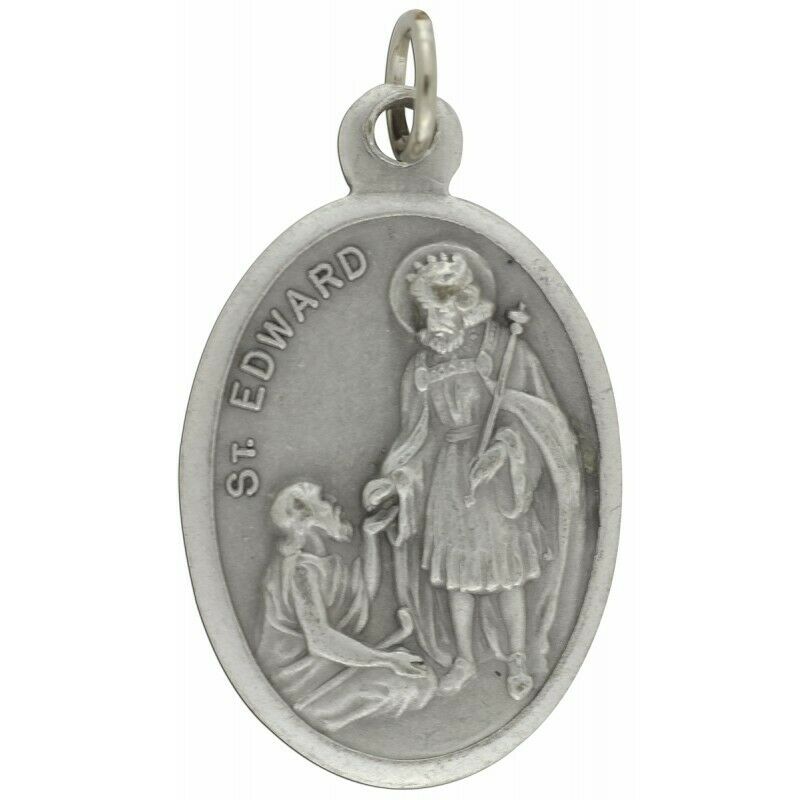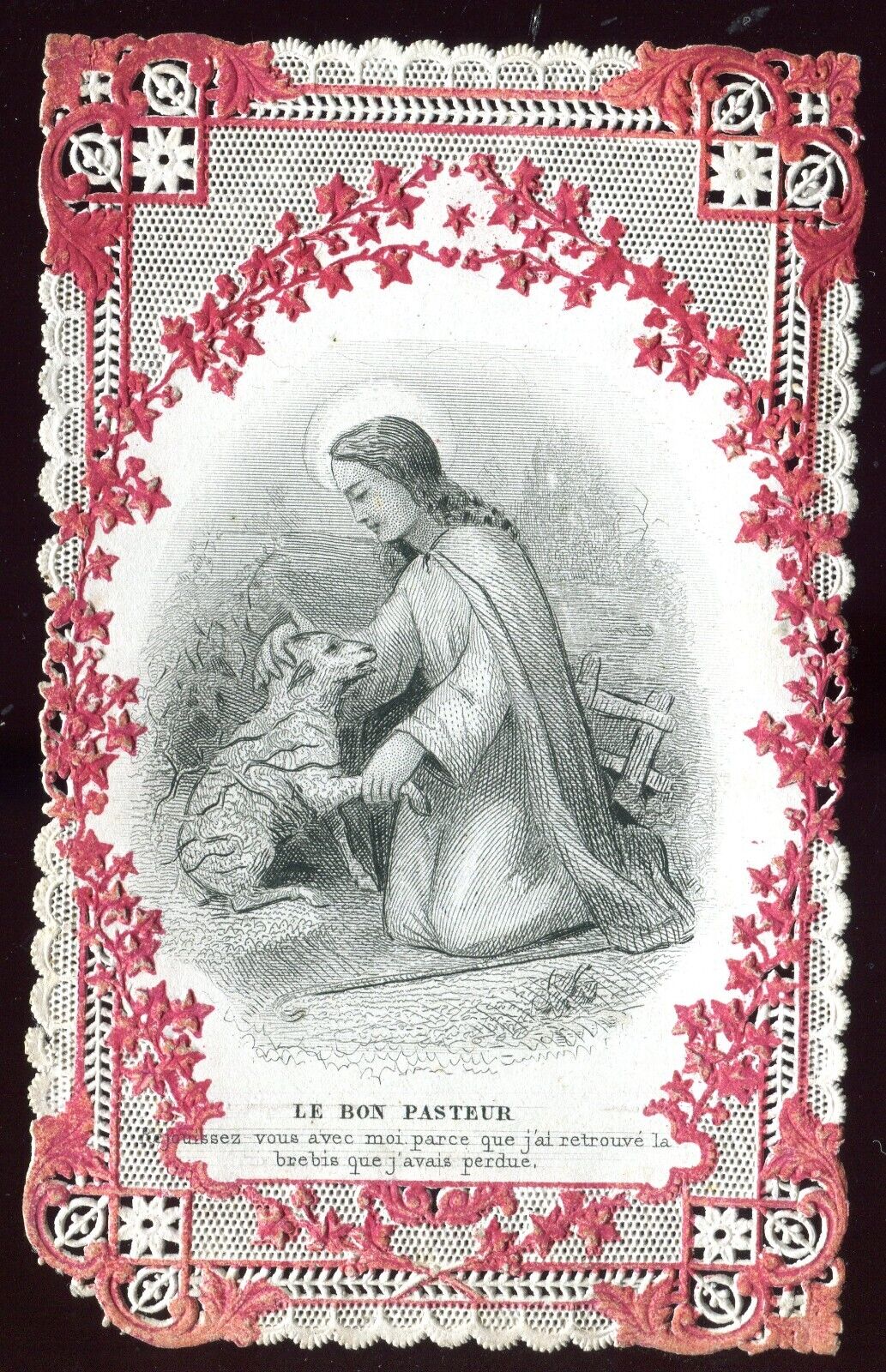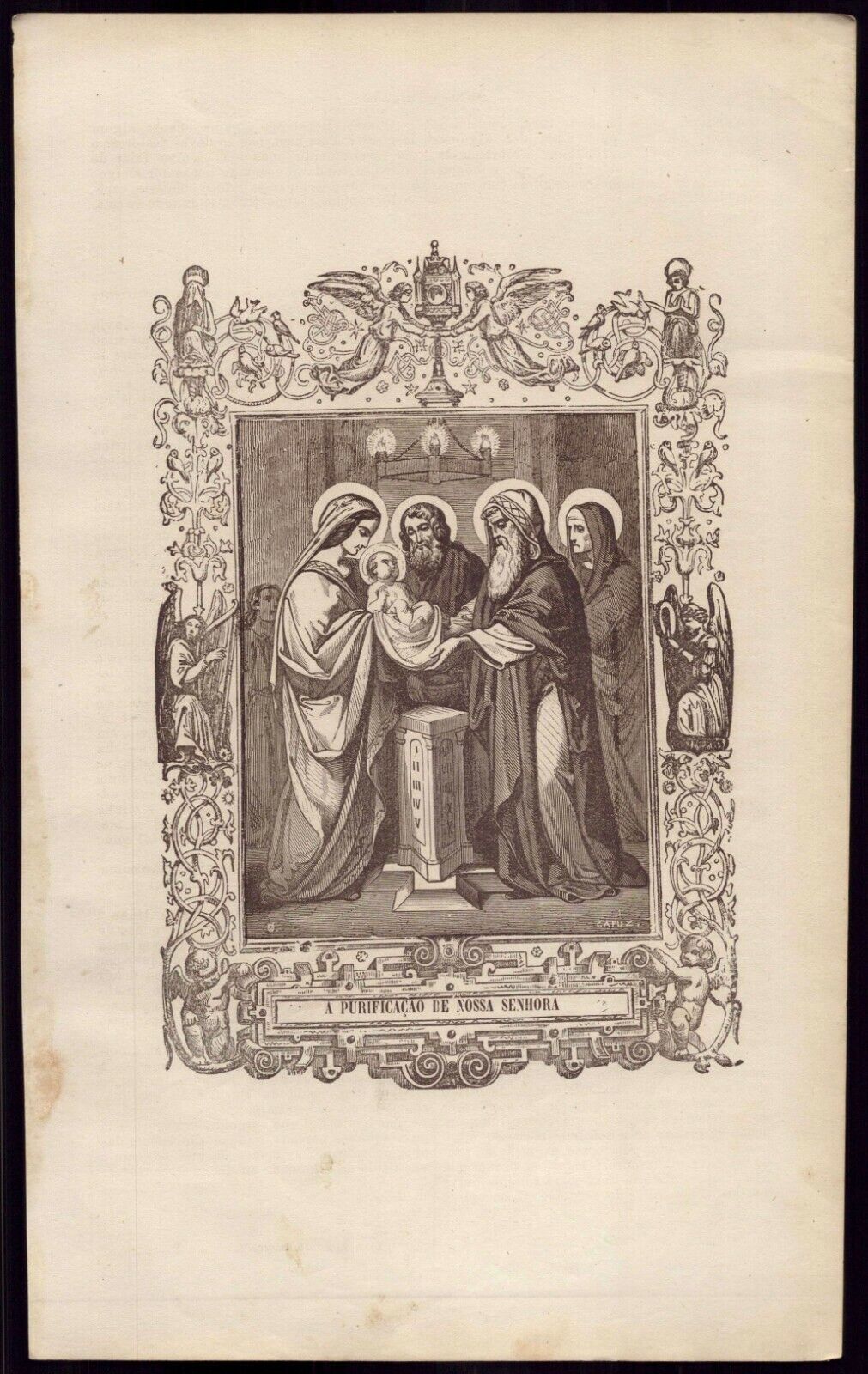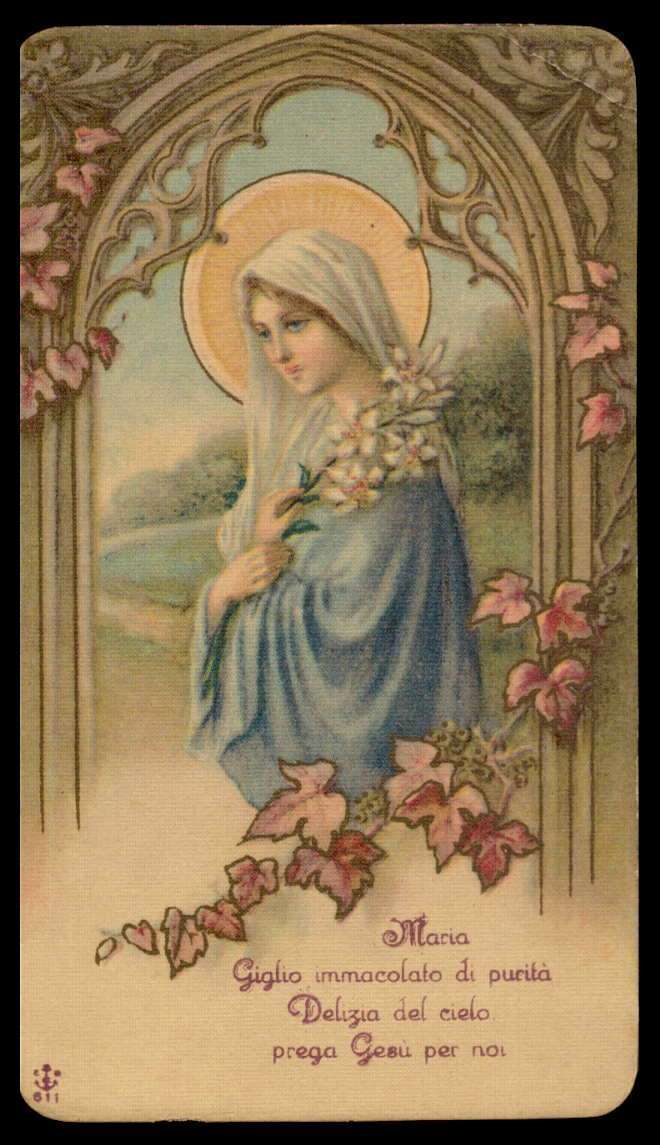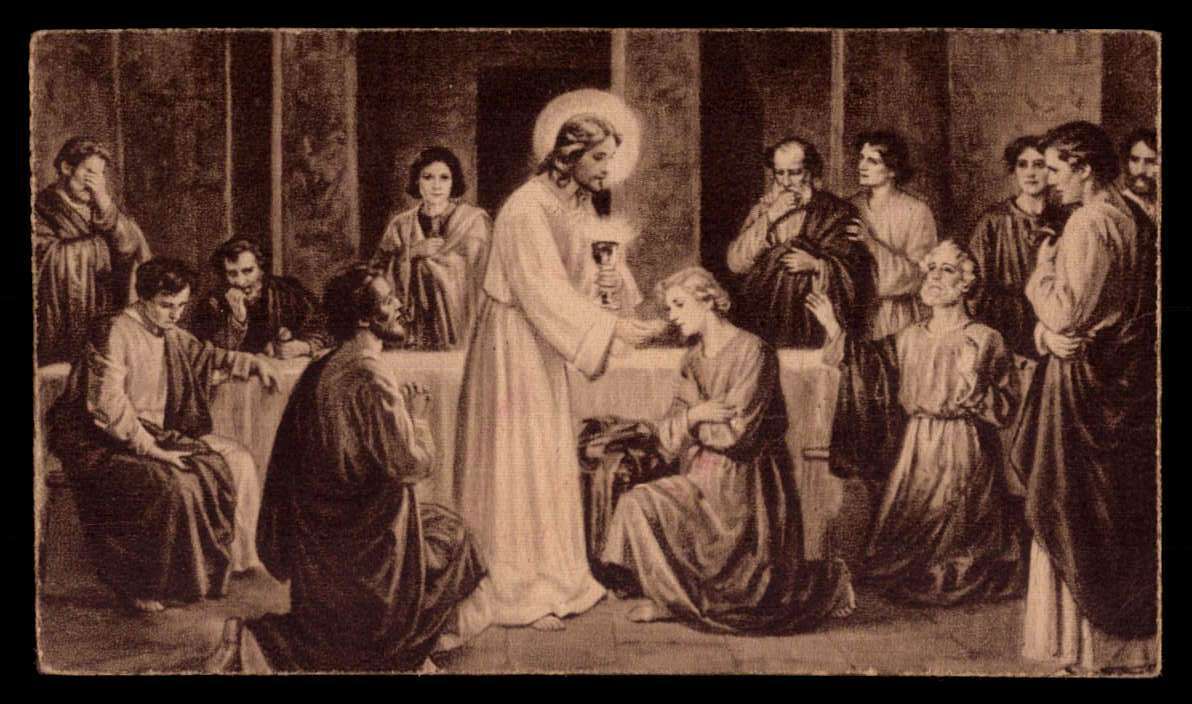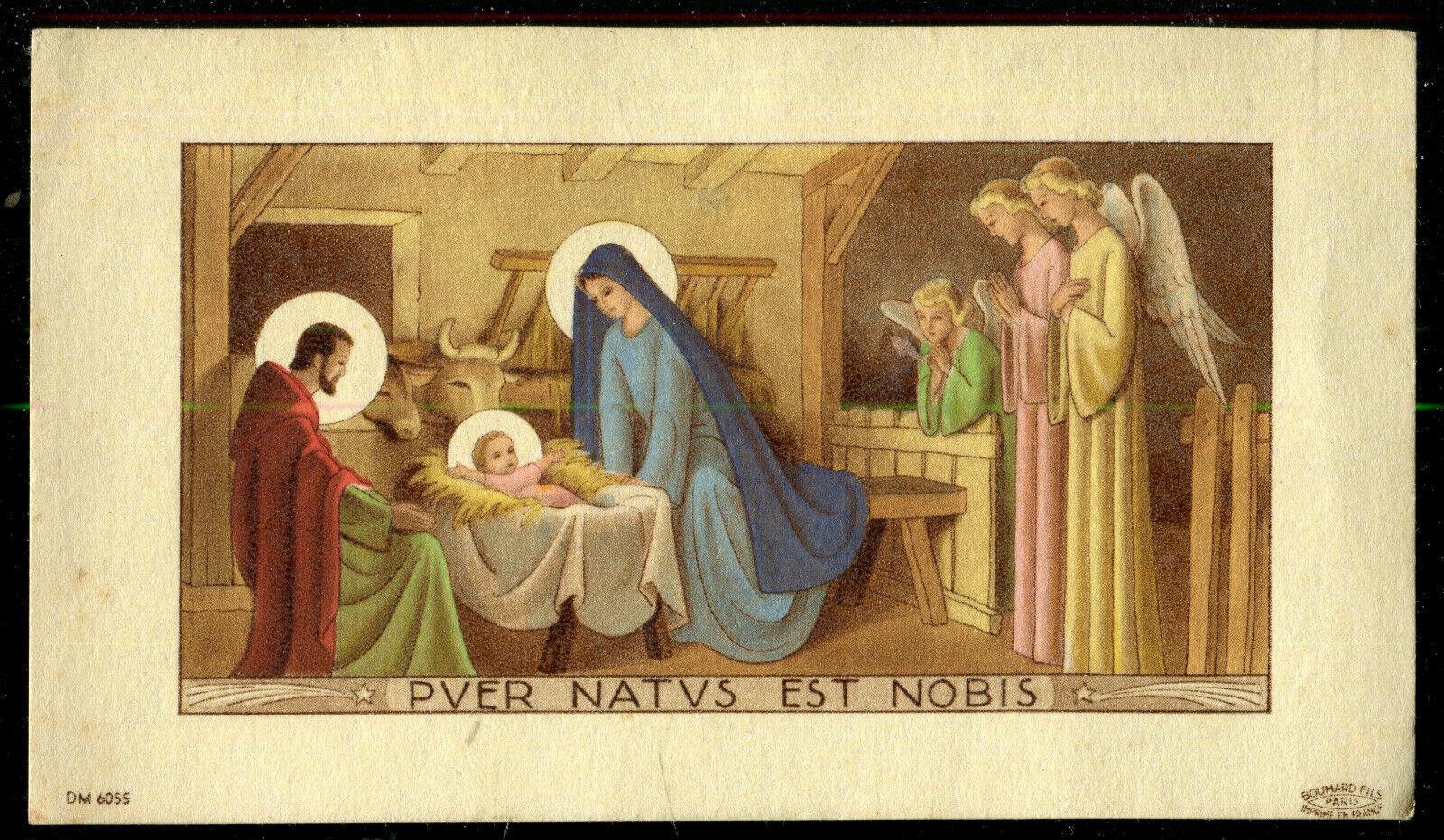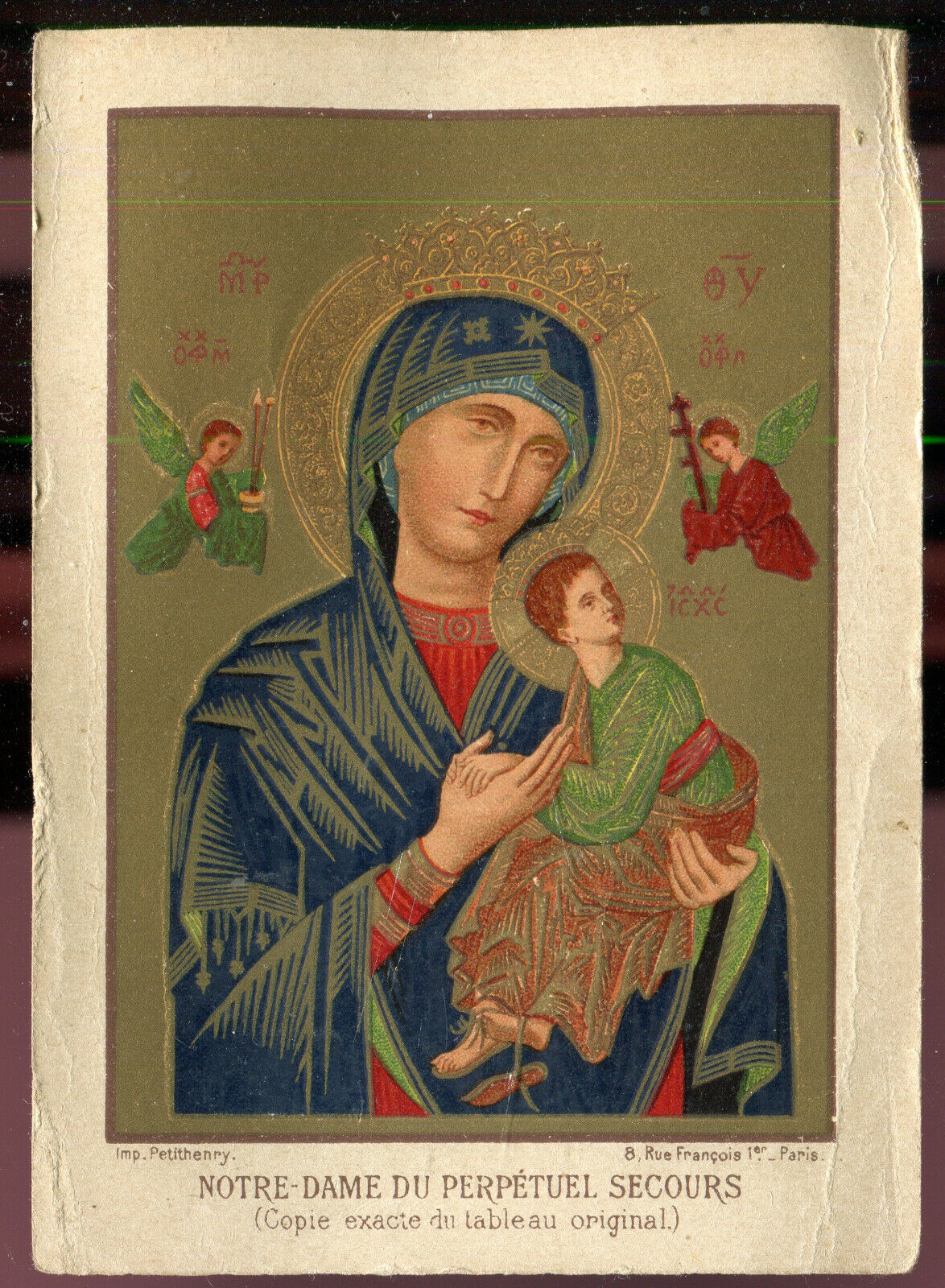-40%
Holy Card of Saint Edward the Confessor a 1" Silver Oxidized Medal of St. Edward
$ 2.5
- Description
- Size Guide
Description
Laminated Holy Card of Saint Edward the Confessor Plus a 1" Silver Oxidized Medal of Saint EdwardThis exceptionally detailed die-cast medal, with Saint Edward on the front and Pray for Us on the back, is made in the region of Italy that produces the finest quality medals in the world. The silver oxidized finish is has been perfected for hundreds of years by the local Italian craftsmen, and remains unmatched in quality, beauty, and longevity throughout the world -a genuine silver plating with a 3-dimensional depth, and long-lasting brilliance. Measures approximately 1 inch in height - attached jump ring is included.
Saint Edward the Confessor was one of the last Anglo-Saxon kings of England. Usually considered the last king of the House of Wessex, he ruled from 1042 to 1066.
Edward was the son of Æthelred the Unready and Emma of Normandy. He succeeded Cnut the Great's son – and his own half-brother – Harthacnut. He restored the rule of the House of Wessex after the period of Danish rule since Cnut conquered England in 1016. When Edward died in 1066, he was succeeded by Harold Godwinson, who was defeated and killed in the same year by the Normans under William the Conqueror at the Battle of Hastings. Edward’s young great-nephew Edgar the Ætheling of the House of Wessex was proclaimed king after the Battle of Hastings in 1066 but was never crowned and was peacefully deposed after about eight weeks.
Historians disagree about Edward's fairly long 24-year reign. His nickname reflects the traditional image of him as unworldly and pious. Confessor reflects his reputation as a saint who did not suffer martyrdom as opposed to his uncle, King Edward the Martyr. Some portray Edward the Confessor's reign as leading to the disintegration of royal power in England and the advance in power of the House of Godwin, because of the infighting that began after his death with no heirs to the throne. Biographers Frank Barlow and Peter Rex, on the other hand, portray Edward as a successful king, one who was energetic, resourceful and sometimes ruthless; they argue that the Norman conquest shortly after his death tarnished his image. However, Richard Mortimer argues that the return of the Godwins from exile in 1052 "meant the effective end of his exercise of power", citing Edward's reduced activity as implying "a withdrawal from affairs".
About a century later, in 1161, Pope Alexander III canonised the king. Edward was one of England's national saints until King Edward III adopted George of Lydda as the national patron saint in about 1350. Saint Edward's feast day is 13 October, celebrated by both the Church of England and the Catholic Church in England and Wales.
